Penguins Through The Years
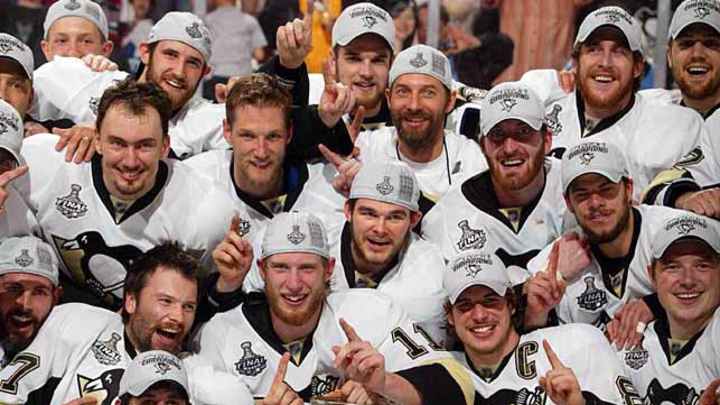
Penguins Through The Years
2008-09 Stanley Cup Champions

The Penguins' third Stanley Cup capped a remarkable season in which they rallied from the brink of missing the playoffs to becoming the first team in the four major pro leagues to win a championship series Game 7 on the road since the 1979 Pittsburgh Pirates. In all, a good year for the city, which celebrated the Steelers' Super Bowl victory in February. Here's a look back at the highs and lows of Pittsburgh's beloved hockey team.
1967

The Penguins join the NHL as one of six expansion teams, their name inspired by the Pittsburgh Civic Arena, otherwise known as The Igloo. Wearing blue and playing in the Western Conference, the Pens lost their first game: to Montreal 2-1 in front of 9,307 home fans. Andy Bathgate (inset) scored their first goal. The only one of the six new teams to not make playoffs during their first two seasons, the Penguins would win their first postseason game in April 1970, beating the Oakland Seals, 2-1, en route to a three-game sweep.
1975

Coming off their first winning season, in which they enjoyed a 20-game home unbeaten streak, the Penguins went down in infamy by blowing a 3-0 playoff series edge to the New York Islanders, falling 1-0 in Game 7 at The Igloo. The bad times continued when the Pens declared bankruptcy and the Civic Arena was padlocked by the IRS. Albert Savill, Otto Frenzel and Wren Blair kept the team afloat and in Pittsburgh.
1984

After finishing last overall with a franchise-worst mark of 16-58-6, the Penguins used their first overall draft pick to take 6' 4" Laval center Mario Lemieux. Nicknamed "Super Mario," he scored his first NHL goal on his first shift (vs. Boston) and went on to win All-Star MVP honors and the Calder Trophy as only the third rookie to ever score 100 or more points. In 1988, Lemieux ended Wayne Gretzky's seven-year run of scoring titles and eight-year reign as NHL MVP, becoming the first Penguin to achieve either feat.
1989-90
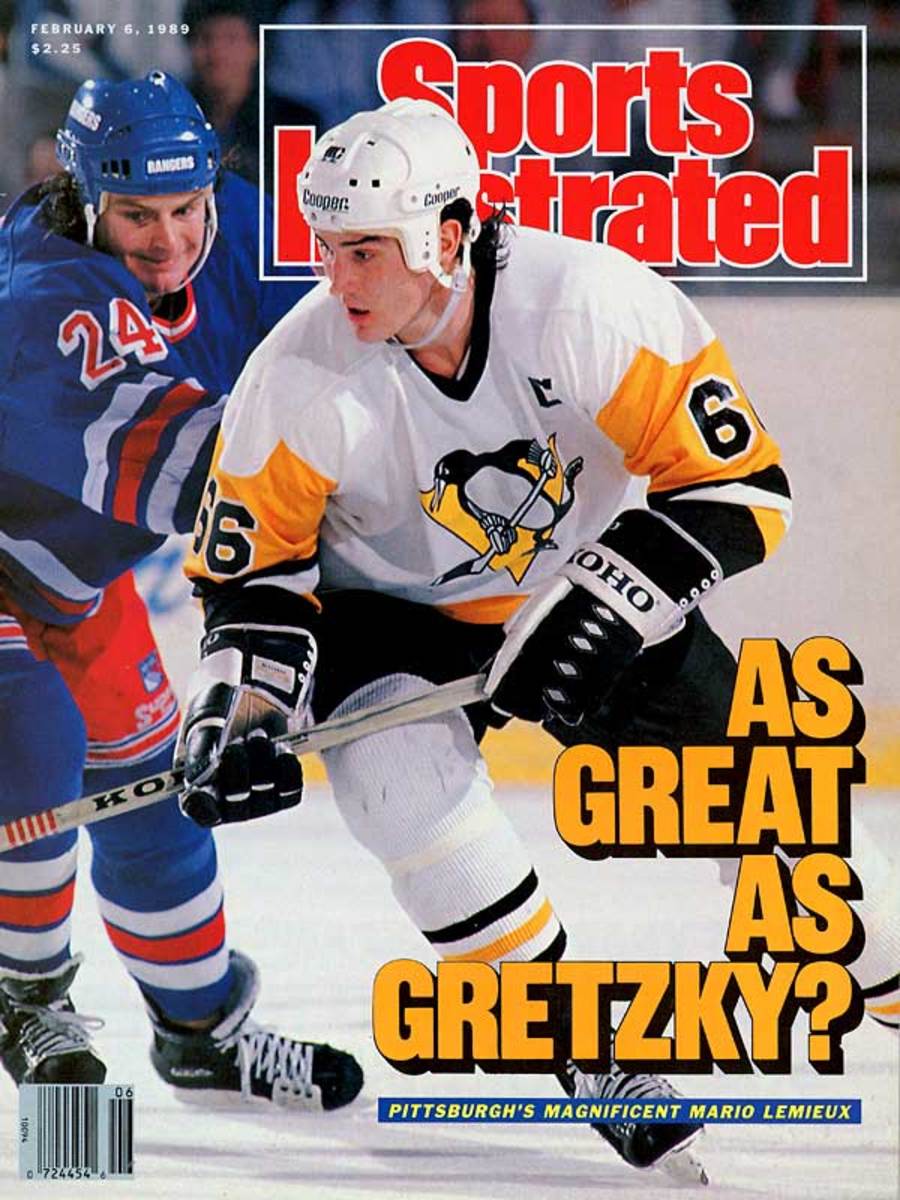
Mario Lemieux began a 46-game scoring streak of 39 goals and 103 points, the second-longest in NHL history. It lasted until February 14, 1990. But with the Penguins en route to missing the playoffs, GM Tony Esposito and coach Gene Ubriaco were fired and replaced by Craig Patrick, who later hired legends Bob Johnson as coach and Scotty Bowman as Director of Development and Recruitment.
1990

The Penguins draft Czech winger Jaromir Jagr fifth overall and acquire Joe Mullen from Calgary for a second-round pick. Jagr would make the team in training camp and go on to score 27 goals and 57 points. During his 11 years in Pittsburgh, Jagr won five scoring titles, the 1998-99 Hart Trophy and two Pearson awards (MVP as chosen by NHL players).
1990-91
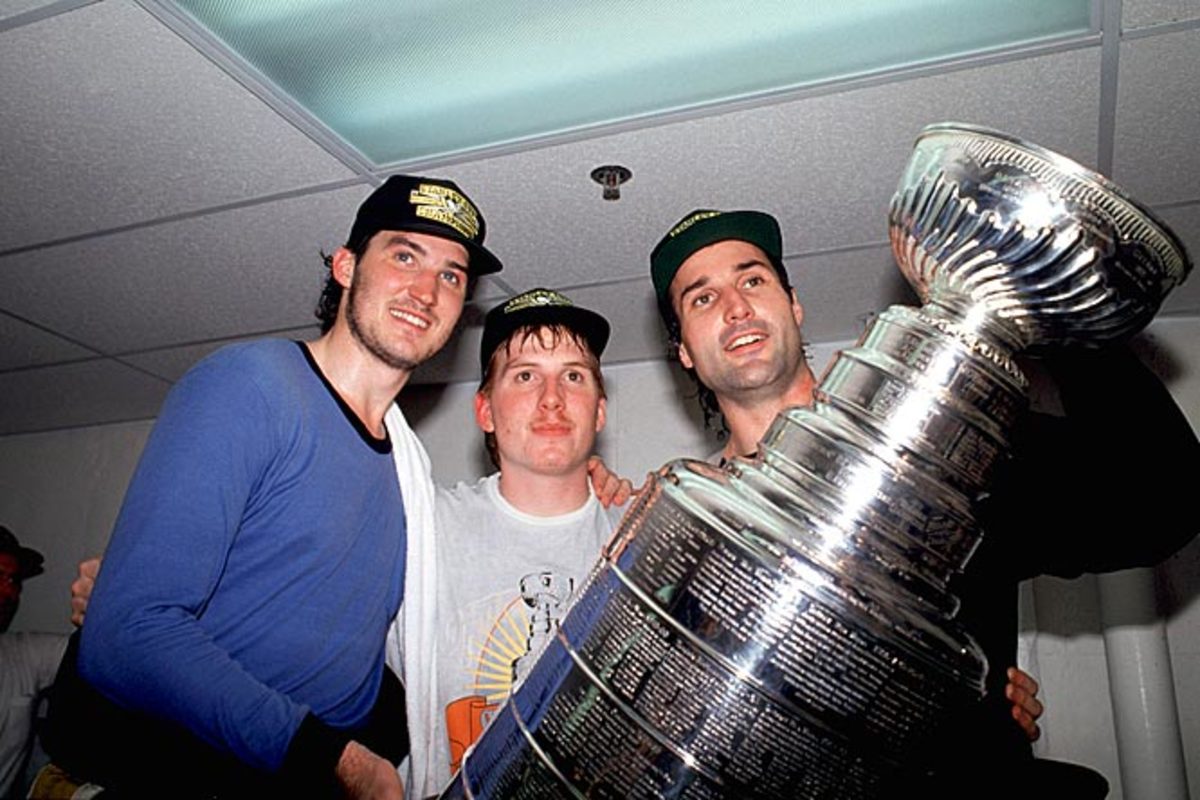
A back injury limited Mario Lemieux (left) to 26 games, but the Penguins still won their first division title, reinforced by Mark Recchi (113 points), Paul Coffey (93, right) and the goaltending of Tom Barasso (center), plus the in-season acquisitions of Larry Murphy, Ron Francis and Ulf Samuelsson. In the playoffs, the Penguins reached the Stanley Cup Final, where they met the North Stars. Mario Lemieux won the Conn Smythe Trophy as Playoff MVP, scoring 12 points in the six-game final series as the Penguins won their first Cup with an 8-0 win in Minnesota.
1991-92
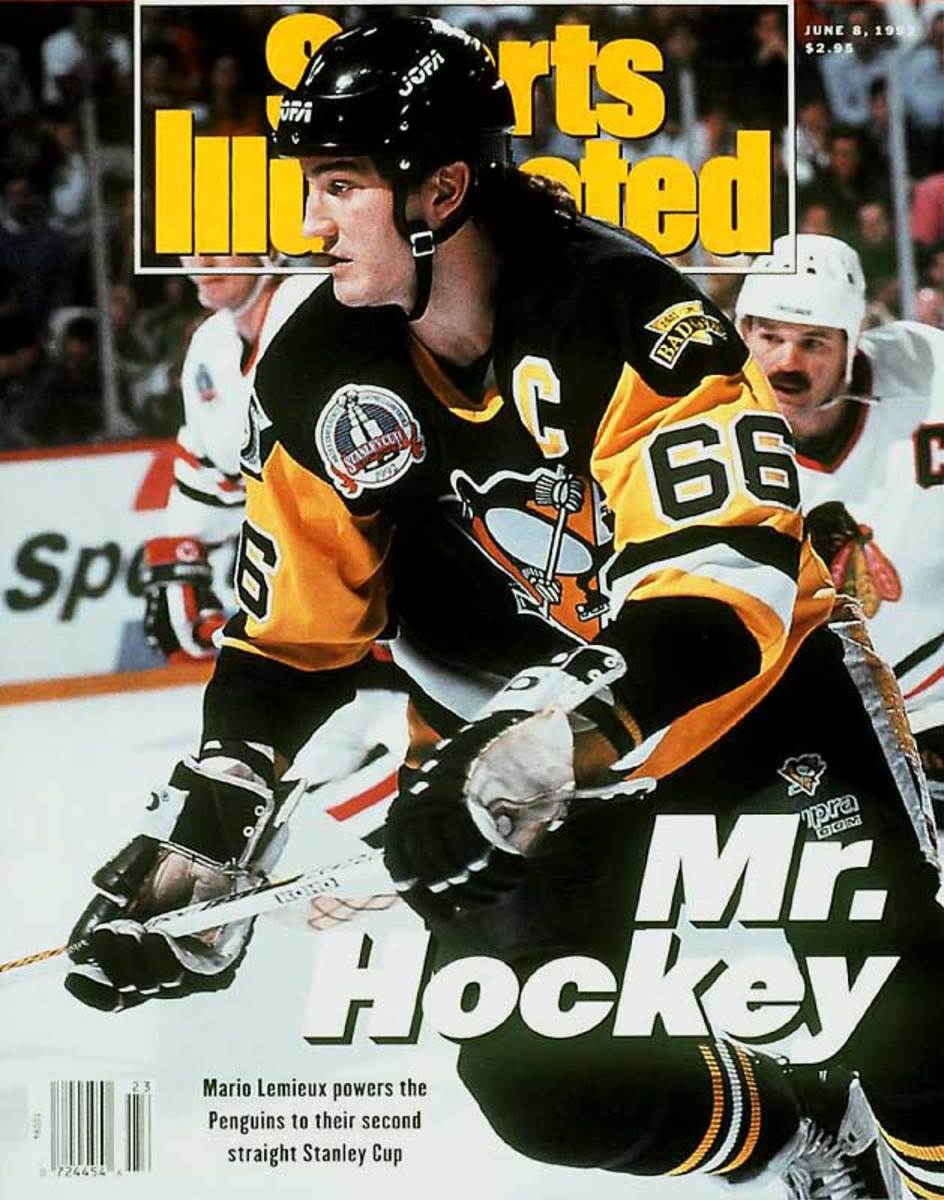
Coach Bob Johnson passed away from brain cancer on Nov. 26, and a candlelight memorial ceremony was held at the Igloo. Under new coach Scotty Bowman, the Penguins qualified for the playoffs with a record of 39-32-9 as Mario Lemieux won the scoring title in a race with teammate Kevin Stevens. In the playoffs, the Penguins rolled to the Cup final where they made quick work of the Chicago Blackhawks, who came in on an 11-game win streak, as Mario Lemieux became just the second repeat-winner of the Conn Smythe.
1993

After starting the season with one loss in their first 14 games, the Penguins were stunned by the news that Mario Lemieux had Hodgkin's disease. After missing 23 games, he returned on March 2 and scored a goal in his first game despite a radiation treatment that day. The Pens closed with a record 17 straight wins and won the President's Trophy for the best regular season mark (56-21-7). Yet the Islanders ended their reign as Cup champs with a stunning seven-game, overtime upset in the division final Lemieux skated off with the Hart, Ross, and Masterton trophies, plus the Lester B. Pearson Award.
1995-96
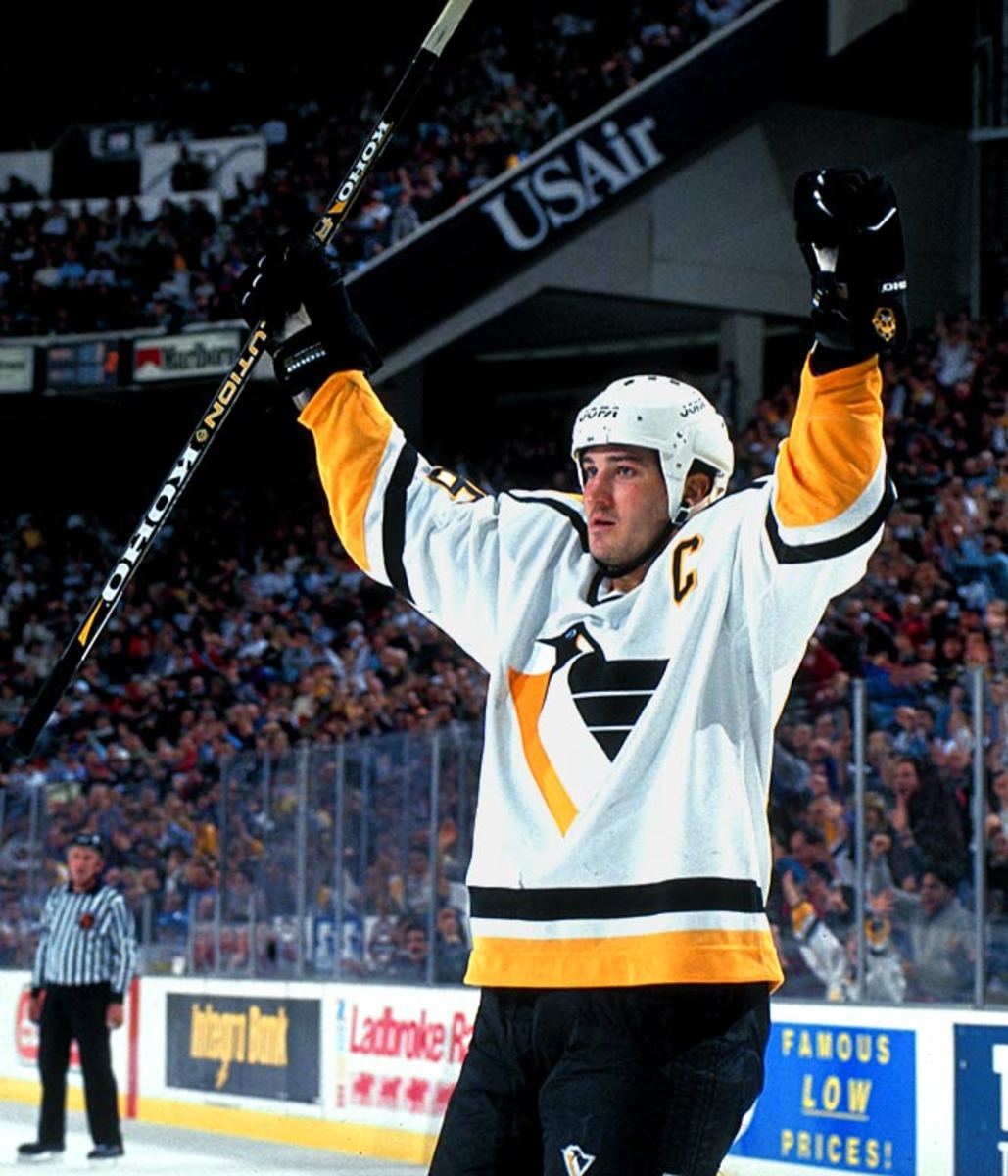
After a one-year hiatus to recover from a bad back and Hodgkin's treatment, Mario Lemieux returned with a bang, scoring 69 goals in 70 games on the way to his 500th career tally, the scoring title (161 points) and the Hart Trophy. Jaromir Jagr finished second in the scoring race as the Penguins posted a 49-29-4 mark. In the playoffs, they knocked off the Capitals and Rangers before falling to the upstart Florida Panthers in seven games.
1996-97
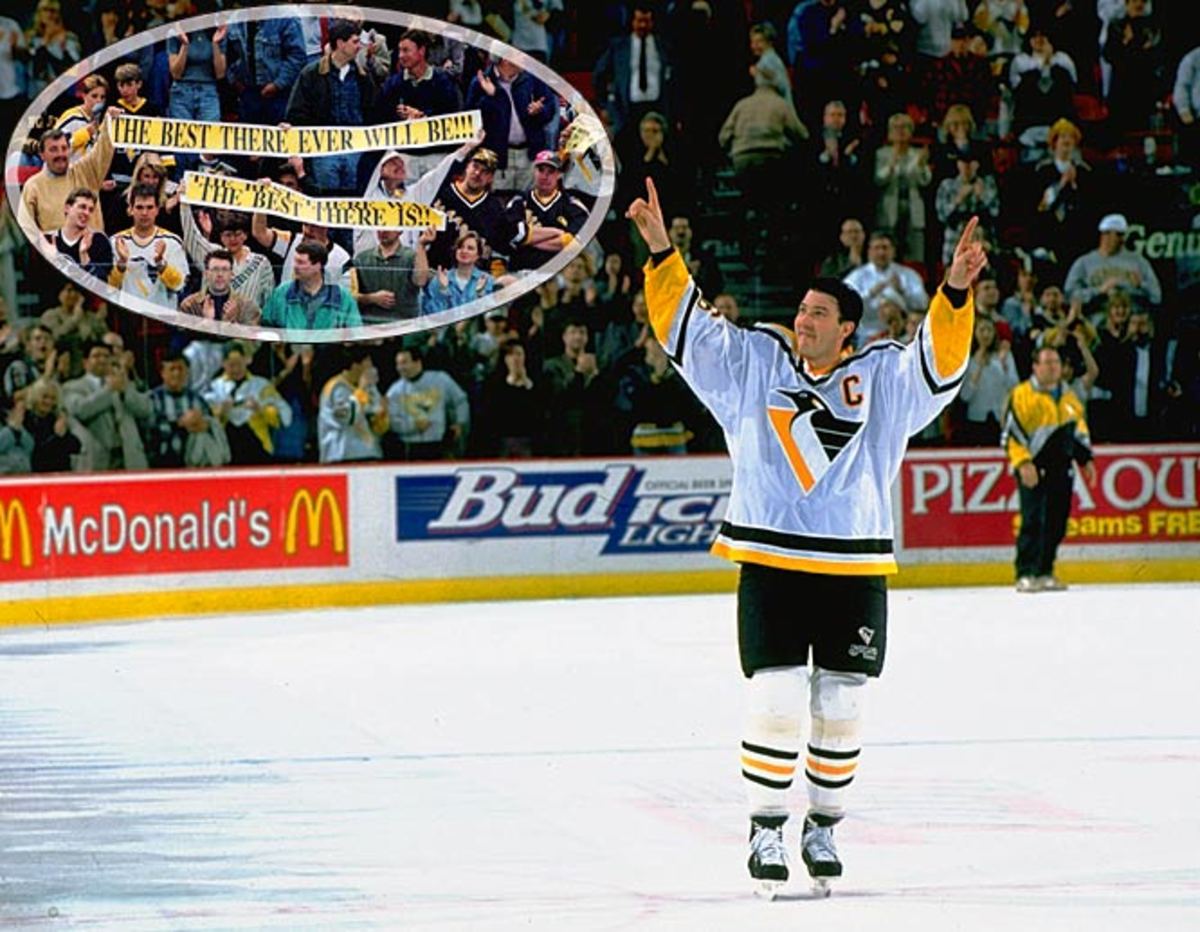
After announcing that the season would be his last, Mario Lemieux scored his 600th career goal -- against Vancouver at The Igloo on Feb. 4, 1997 -- becoming the second fastest player to reach that mark. In the playoffs, the Penguins fell to the Flyers in five first-round games with Lemieux scoring on his final shot in the Civic Center as the crowd chanted his name during the final minutes. After the season, the Hockey Hall of Fame announced it would waive its three-year waiting period and allow Lemieux to enter immediately.
November 17, 1997
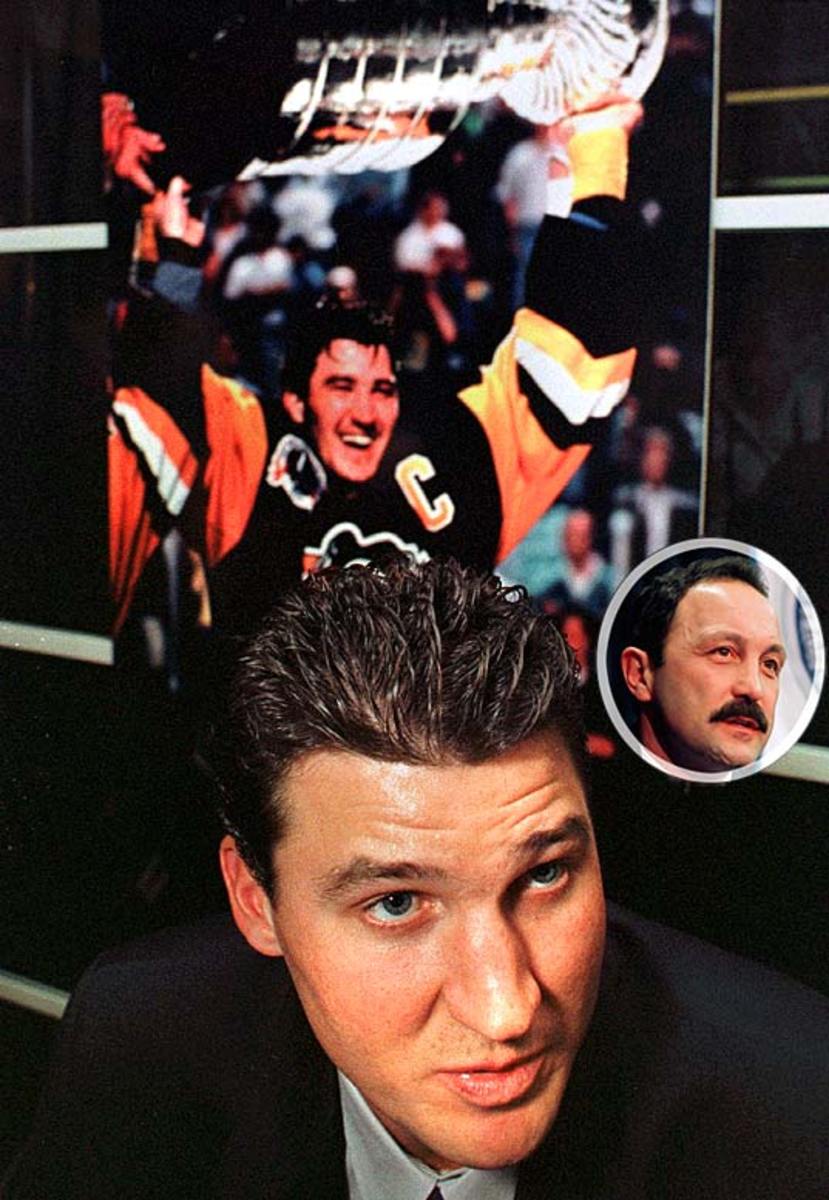
Mario Lemieux is inducted into the Hockey Hall of Fame along with Bryan Trottier (inset), the former Islanders great who concluded his career with the Penguins (1990-94).
1997-98
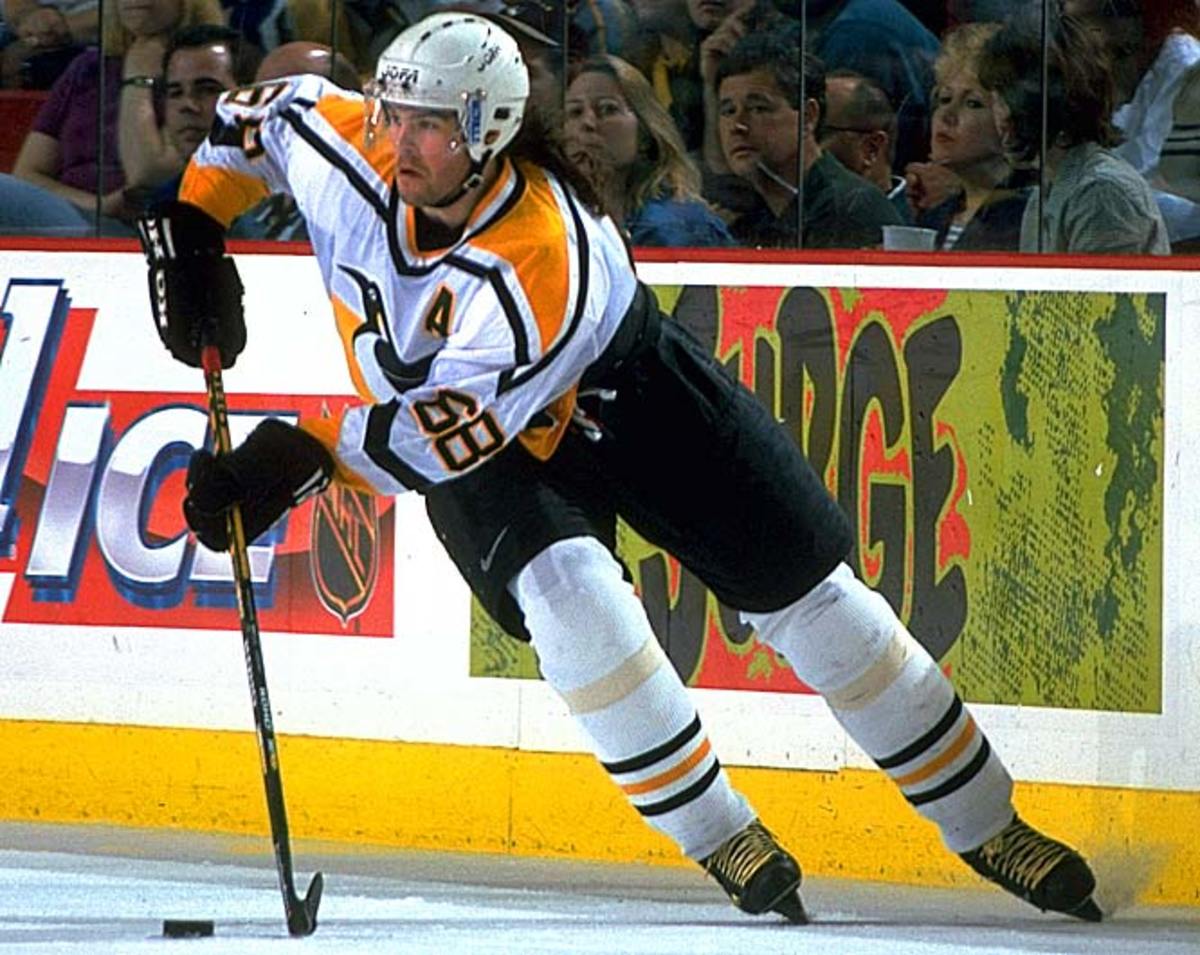
Now the team's leader, Jaromir Jagr won the scoring title as the Penguins took the Northeast Division with a 40-24-18 mark before falling in the first round to Montreal. The team was also forced to declare bankruptcy, but Mario Lemieux rode to the rescue in July 1999 with an investment group that bought the team.
Dec. 27 1999
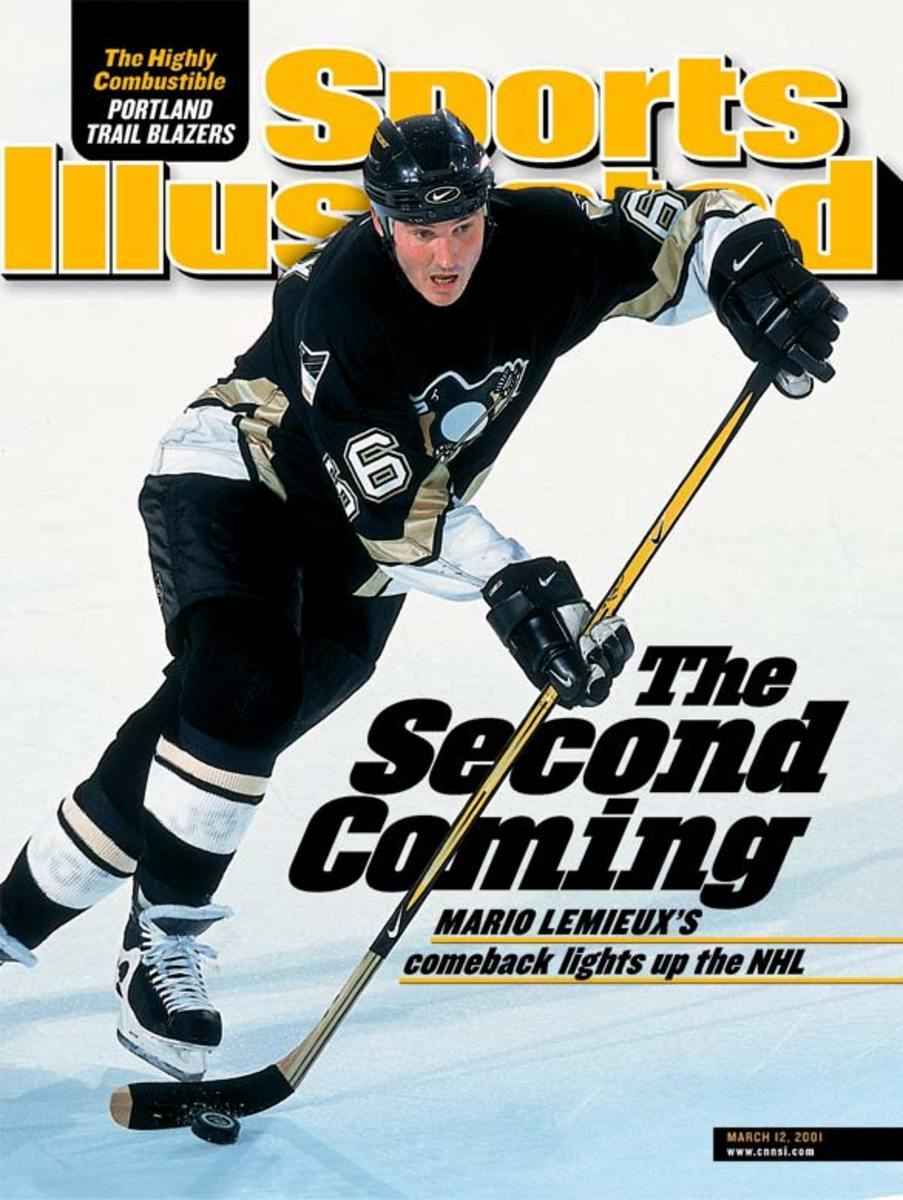
Mario Lemieux makes a stunning return to action, scoring a goal and assisting on two others as the Penguins beat Toronto, 5-0, in Pittsburgh. The Hall of Famer went on to notch 16 goals and 14 assists in his first 15 games and play in the All-Star Game. Jaromir Jagr won the scoring title, but Lemieux finished with 35 goals and 41 assists in 43 games as the Penguins advanced to the Eastern Conference Finals before falling to the Devils.
2001-02
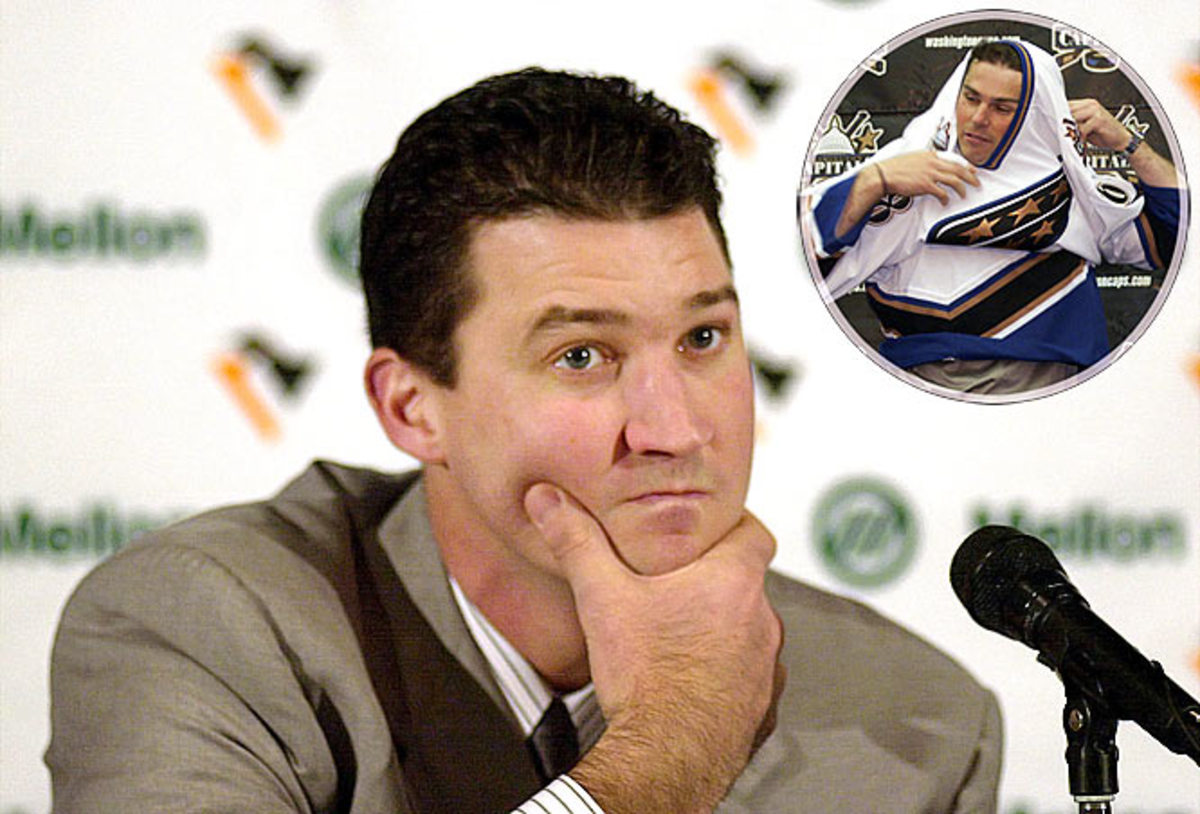
Still struggling financially, the Penguins were forced to trade Jaromir Jagr to Washington. With Mario Lemieux limited to just 24 games due to hip woes -- he still scored 31 points -- the Pens missed the playoffs for the first time since 1990. The fire sale continued in 2002-03 as Alexei Kovalev was dealt to the Rangers.
2003-04
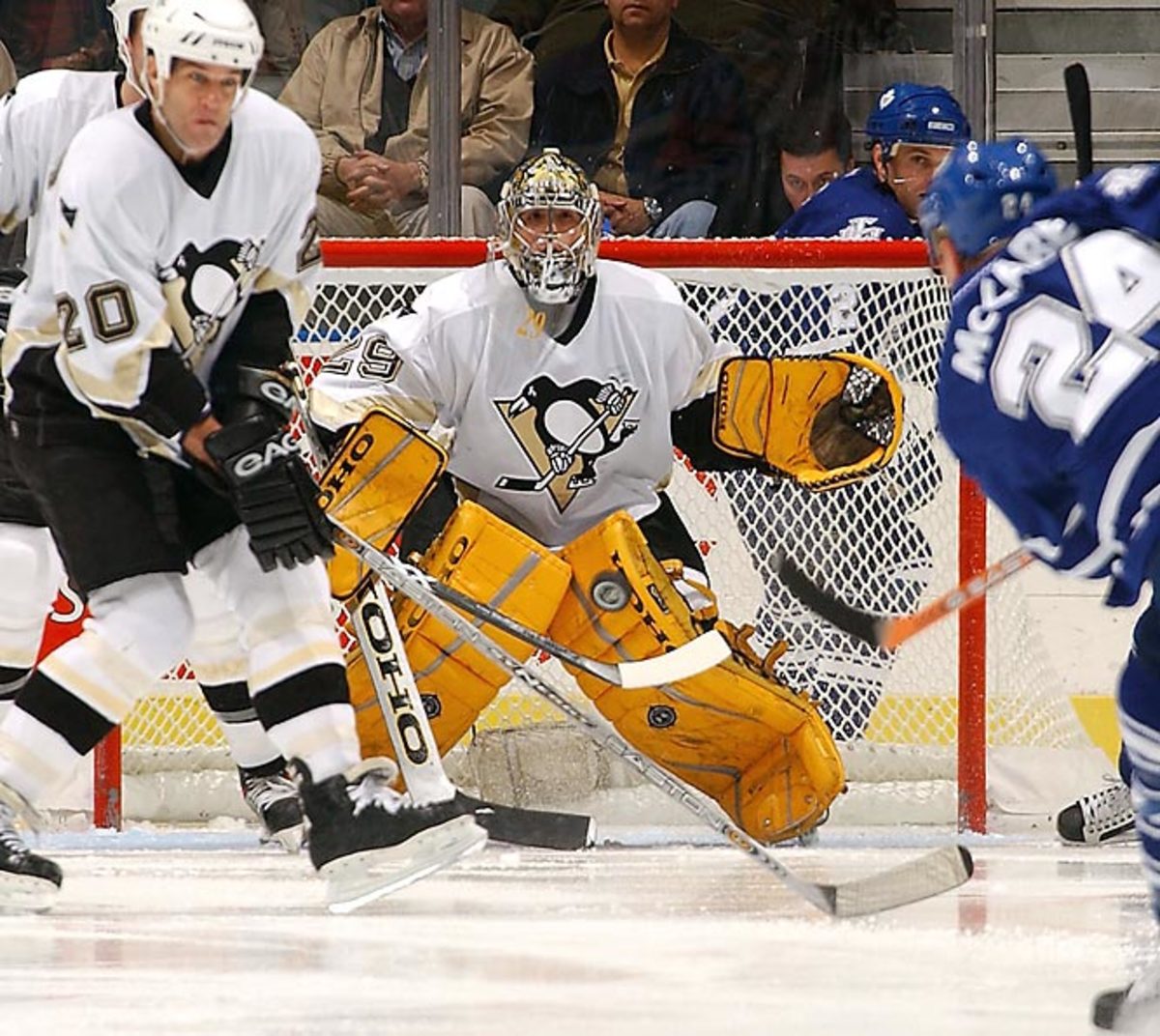
The Penguins drafted goaltender Marc-Andre Fleury first overall in 2003 and then suffered through a league-worst record of 23-47-8-4. Mario Lemieux was sidelined by a hip injury after only 10 games.
July 2005
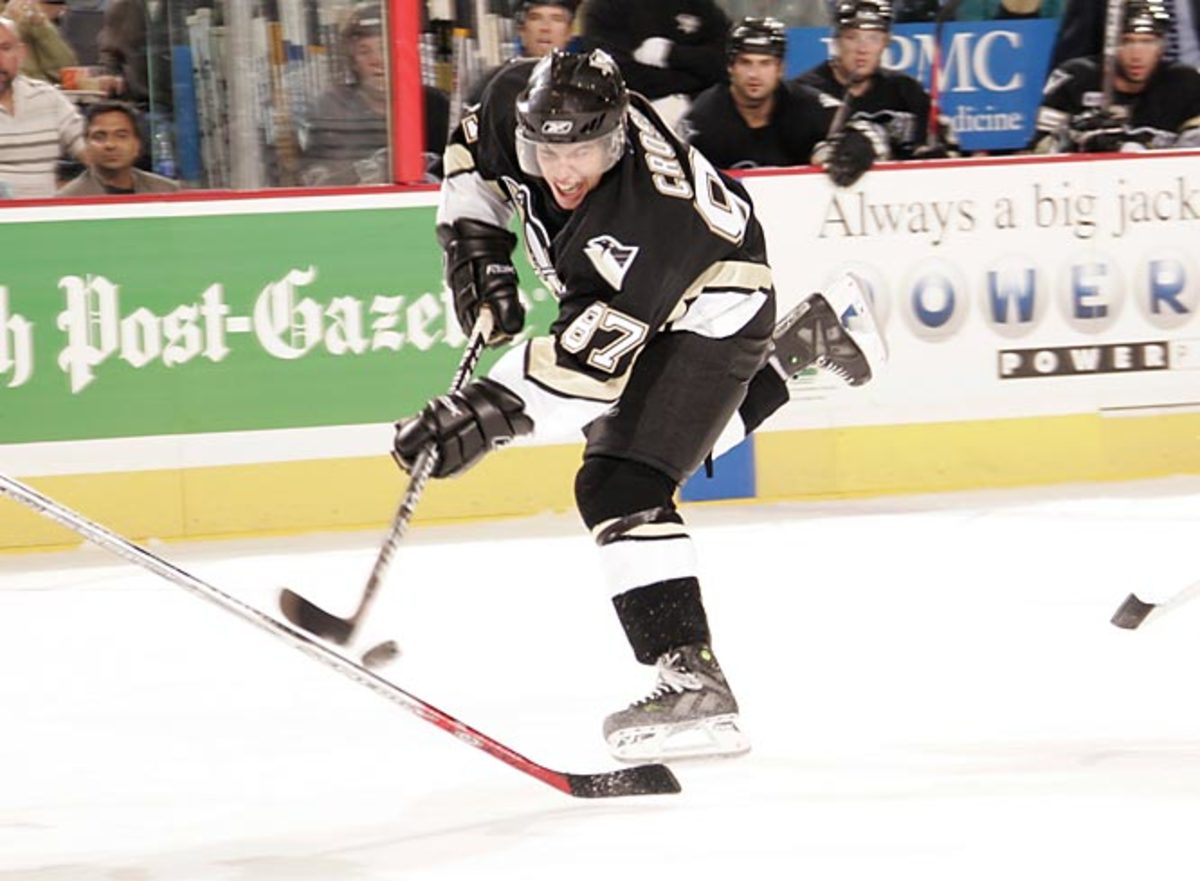
After the 2004-05 season was cancelled by a lockout, the Penguins won the draft lottery and selected 18-year old center Sidney Crosby, the most highly-touted prospect since Mario Lemieux. Crosby moves in with Lemieux and begins learning at the feet of the master. The Penguins again finish last, with a record of 22-46-14.
2006-07
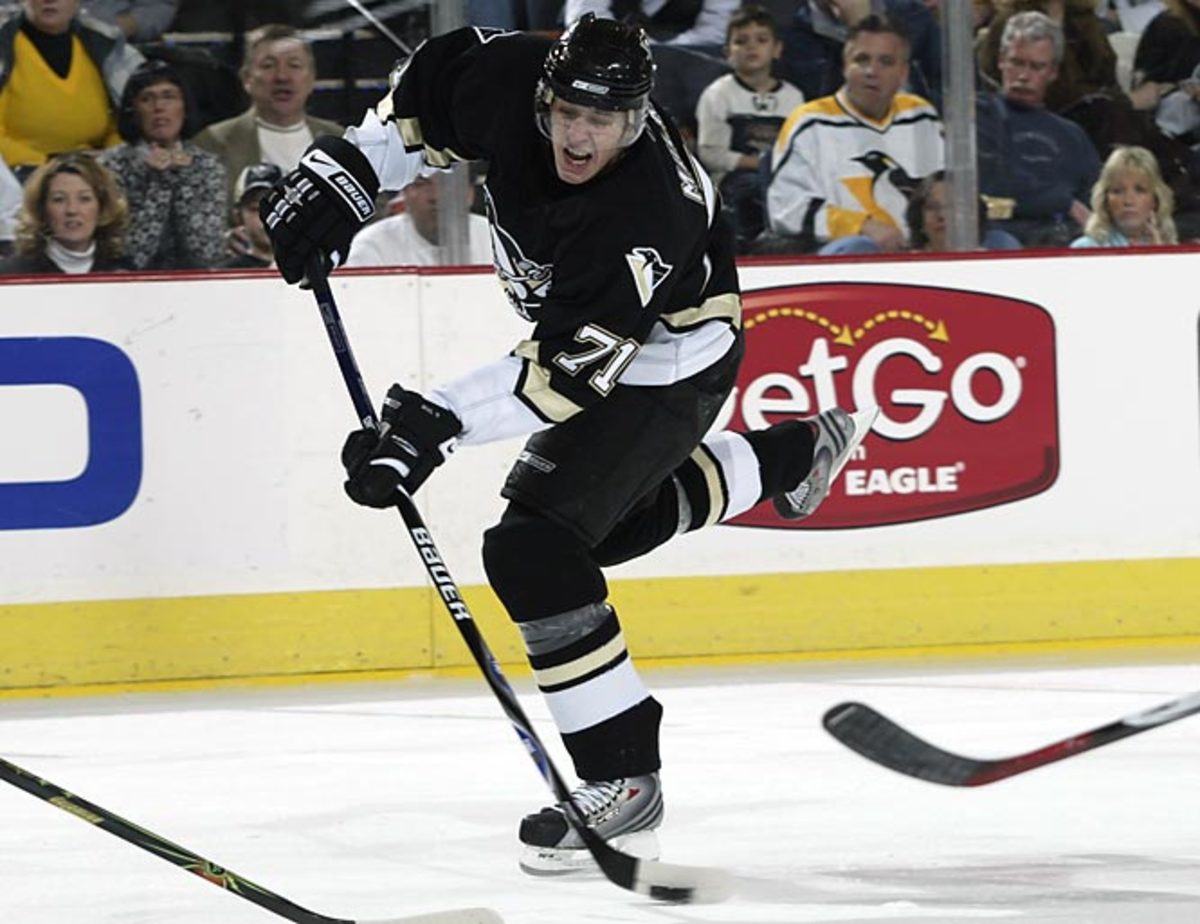
Bolstered by Calder Trophy-winner Evgeni Malkin (33 goals) and finalist Jordan Staal (29), the Penguins displayed the first signs of a becoming a budding powerhouse. Sidney Crosby shines, winning the scoring title and becoming the youngest Hart Trophy-winner (19) in league history. The Pens make the playoffs for the first time in six years, but their future in Pittsburgh is in doubt. The team is put up for sale, with moves to Hamilton or Kansas City looming. On March 13, a new arena deal is reached, and Lemieux takes the team off the market.
2007-08
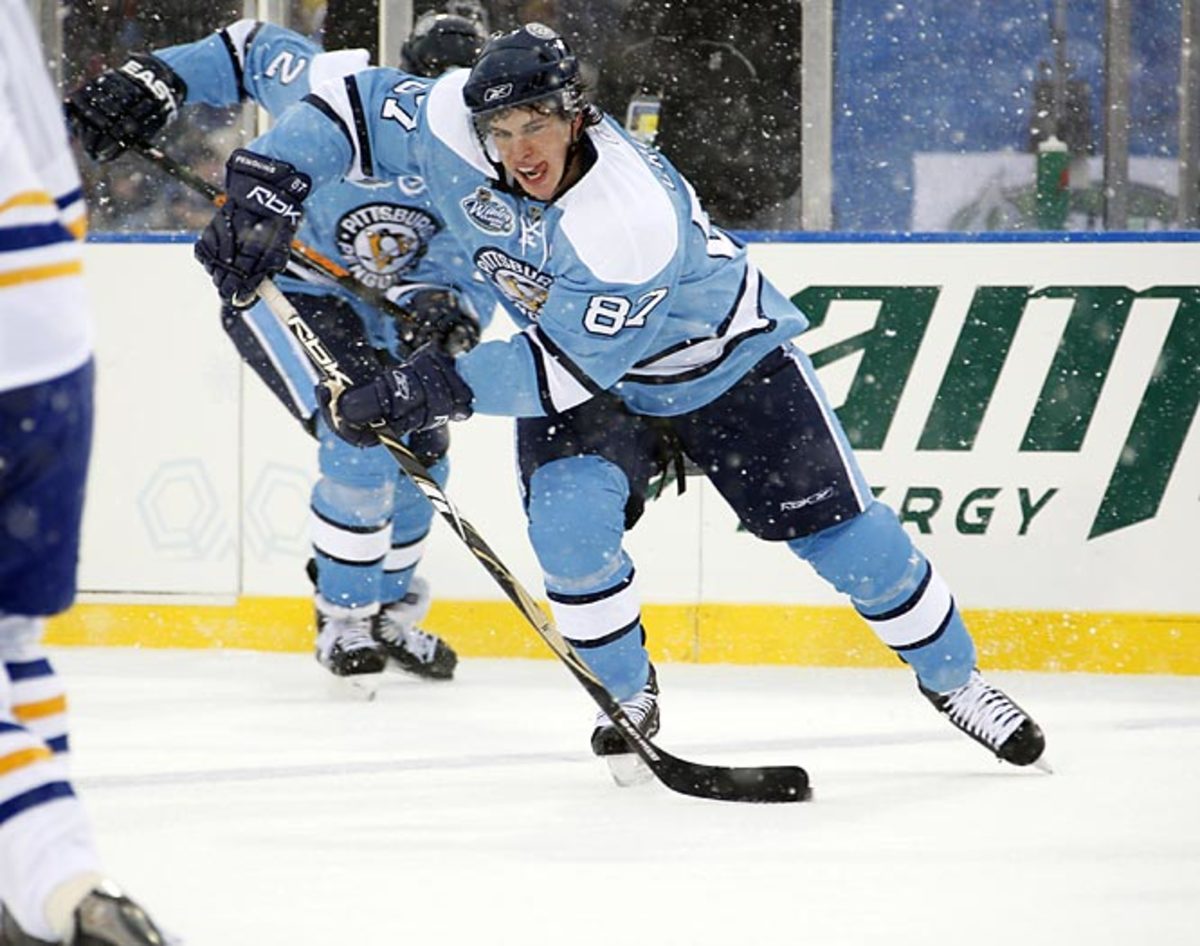
The Penguins overcome a slow start, using the Winter Classic outdoor game in Buffalo on New Year's Day to launch their stretch drive that takes them to their first division title in 10 years. Sidney Crosby scores the game-winner in a shootout before a national TV audience. Despite losing Crosby (28 games) and Fleury (27) to injuries, the Penguins continue to roll, thanks to the trade deadline addition of Marian Hossa from Atlanta, and reach the Stanley Cup Final by downing the in-state rival Flyers in the Eastern Conference final.
June 2008
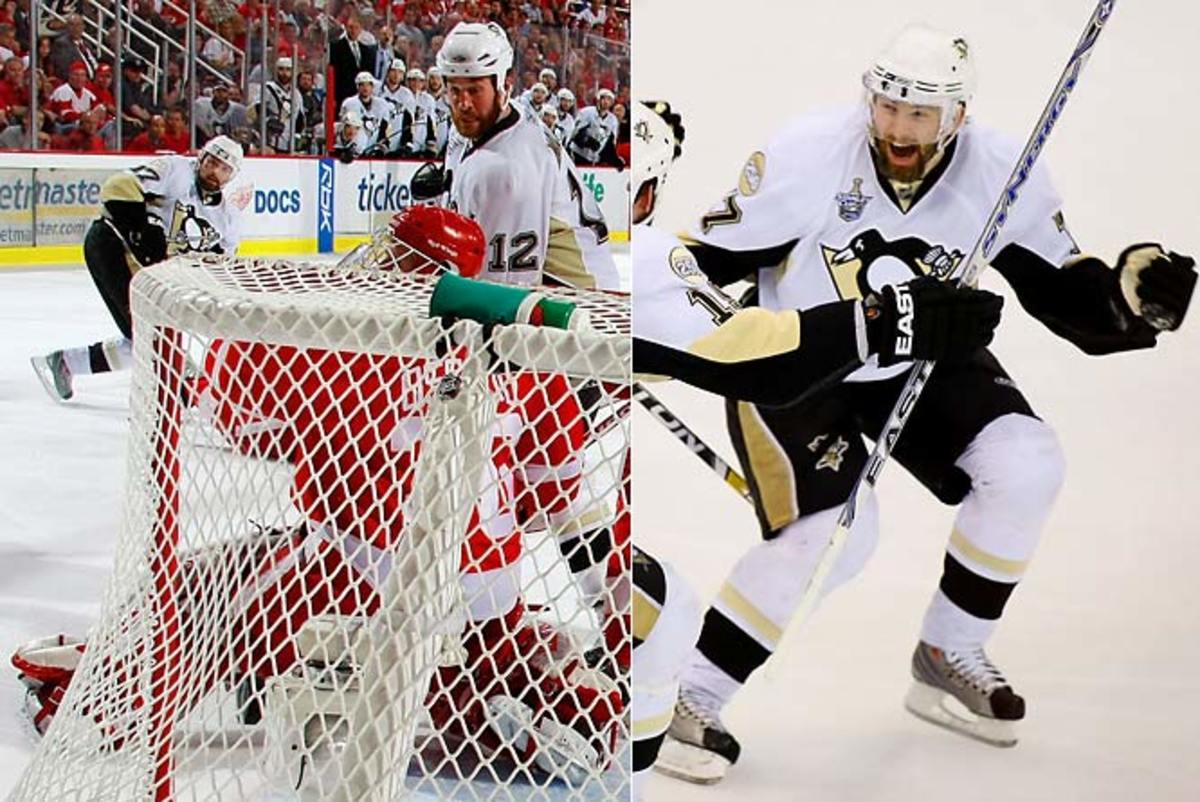
In the Stanley Cup Final, the Penguins were shut out in the first two games, but extended the Red Wings to six games. Their highlight was a Game 5 win in Detroit, set up by Maxime Talbot's tying goal with 35 seconds left, and ended by Petr Sykora in triple overtime.
2008-09
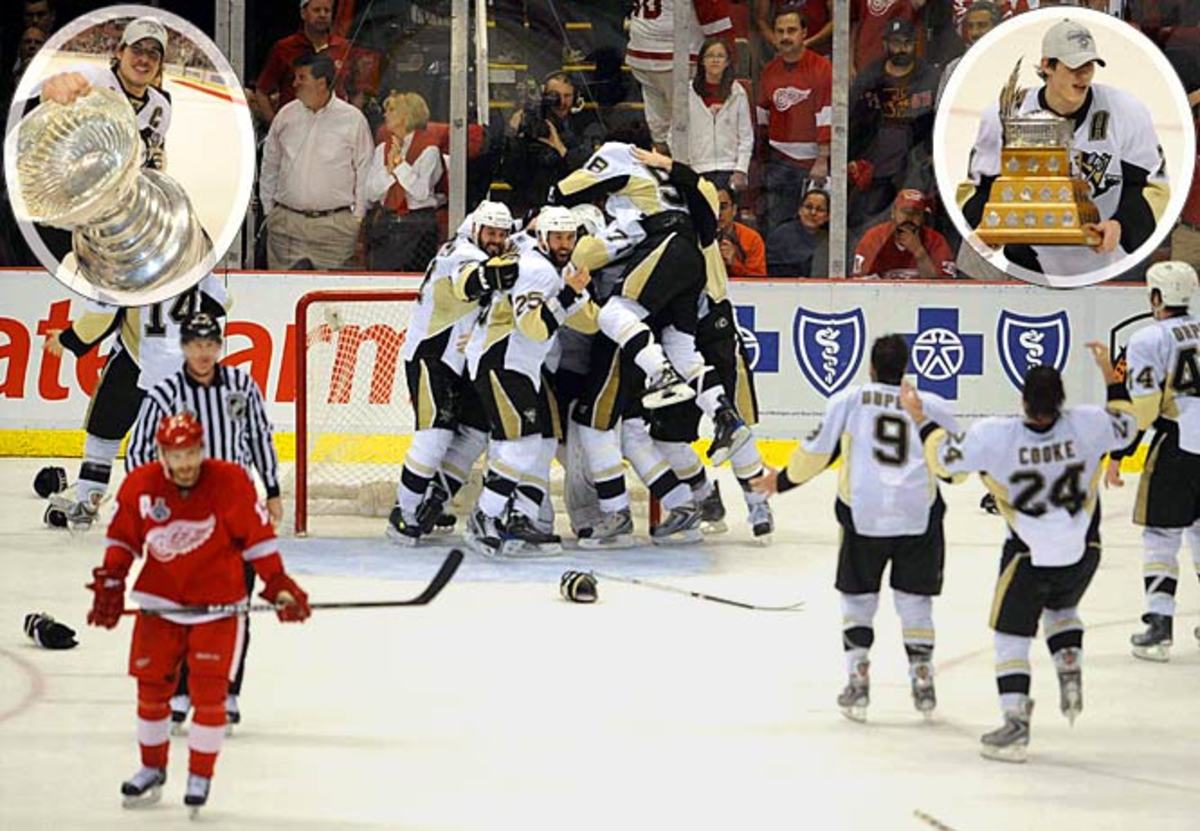
Struggling and in danger of missing the playoffs, the Penguins make a dramatic turnaround after Dan Bylsma replaces Michel Therrien as coach in February. Led by their dynamic duo of Sidney Crosby (inset left) and Evgeni Malkin (inset right), the Penguins roar into the playoffs and end up in an epic seven-game Cup final rematch with Detroit. In Game 7, Max Talbot netted two goals in the second period to steer the Penguins to a 2-1 victory for the Cup. Evgeni Malkin was named winner of the Conn Smythe trophy for most valuable player in the Stanley Cup.
